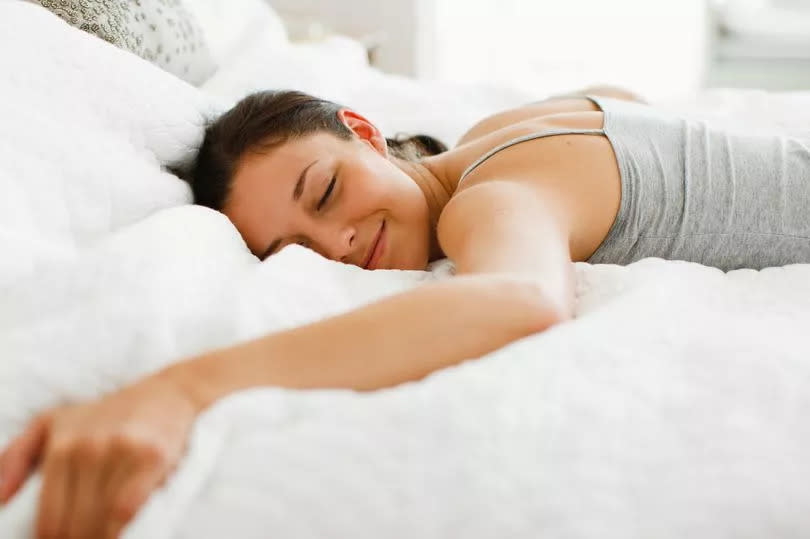Fall asleep in seconds with neuroscientist's five life hacks

A neuroscientist has disclosed his five life hacks that help you fall asleep quickly and wake up feel well rested. Professor Matthew Walker explained his top strategies for achieving a good night's rest during an appearance on the Diary of a CEO podcast show.
Walker is a professor of neuroscience and psychology at the University of California, Berkeley, and founder of the Center for Human Sleep Science. He has made appearances on numerous television and radio outlets, including the BBC.
In conversation with host Steven Bartlett, Professor Walker highlighted the importance of consistency, particularly for optimal sleep health. He explained: "There's probably I think five standard tips what we call sort of sleep hygiene.
"First thing is regularity go to bed at the same time and wake up at the same time no matter, whether it's the weekday or the weekend." He went on to explain that our brains crave routine.
"Your brain expects regularity it thrives best in the conditions of regularity when you give it regularity you can improve the quantity and the quantity of your sleep," he said. Walker also emphasised the role of darkness in preparing for sleep.
"We don't get enough darkness in the modern world," he stated. "The trick I would offer... would be in the last hour before bed, dim down half of the lights... in the last hour before bed... you will be surprised at how sleepy that darkness will make you feel."
Professor Walker's third tip emphasises the need for a cooler sleeping environment. He made the point: "Most people sleep in an ambient bedroom temperature that is too high.
"You need to aim for bedroom temperature of about 18 to 18 and a half degrees Celsius. You need to drop your core body temperature and your brain temperature by about one degree Celsius to fall asleep and stay asleep.
"It's the reason that you will always find it easier to fall asleep in a room that's too cold than too hot. So make your bedroom cold make it dark like a cave."
For the fourth tip, Walker encourages employing a 30-minute rule. If you've been trying to snooze for the past half hour but have not been successful, get up and engage in a different activity.
Whether that's meditation, walking around your house, or another non-stressful task until you feel sleepy again. Staying frustrated and restless while lying in bed achieves nothing, he insists.
Lastly, the fifth suggestion revolves around moderating your alcohol consumption. It is a misconception that alcohol aids sleep even though it may give you a feeling of relaxation, he explains.
"Alcohol is very good at blocking your REM sleep or your dream sleep which we know is critical...alcohol's not your friend," Walker conveyed.
What is REM sleep?
According to the NHS, sleep is split up into different 'stages' through the night. Rapid Eye Movement (REM) sleep is a stage which first occurs around 90 minutes after you fall asleep.
The first period of REM normally lasts around 10 minutes, and as sleep continues there tends to be more REM in the second half of the night. It is called ‘rapid eye movement’ sleep because your eyes will move more rapidly behind closed eyelids.
During REM, dreams may be much more vivid. This is due to the fact that the brain is more active during this stage.
REM sleep is important and is associated with many aspects of health and brain function. Therefore it is important to get enough REM sleep to be better able to function during the day.

 Yahoo News
Yahoo News 
